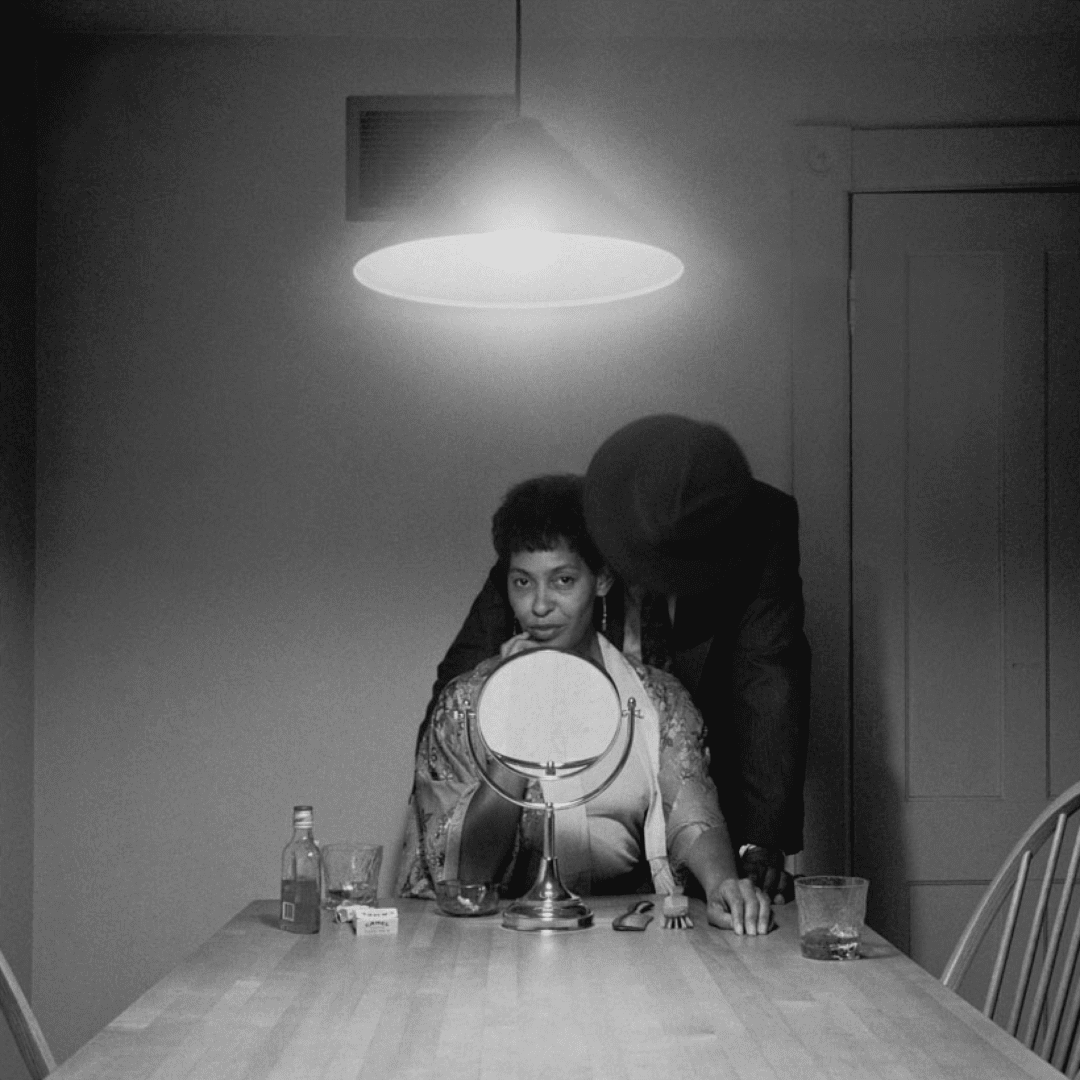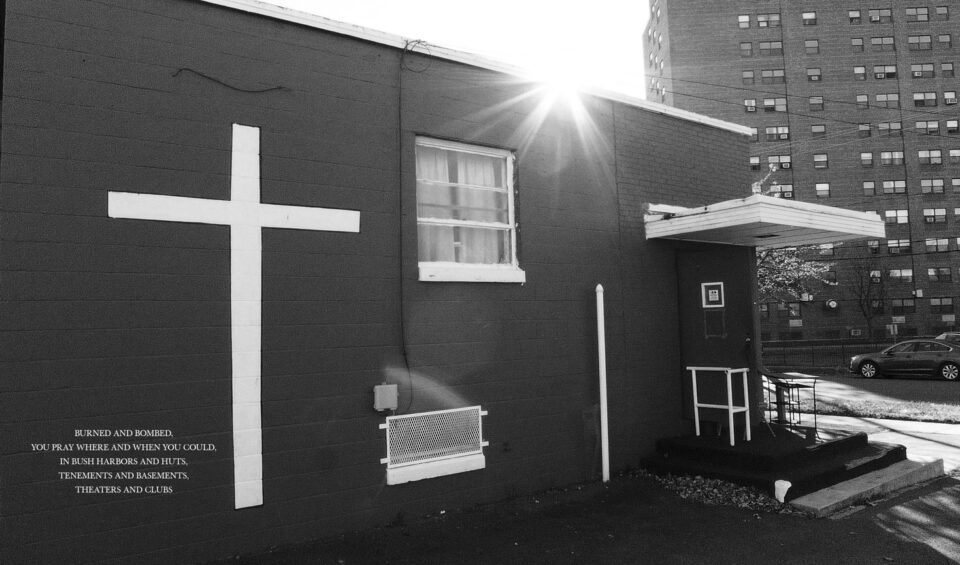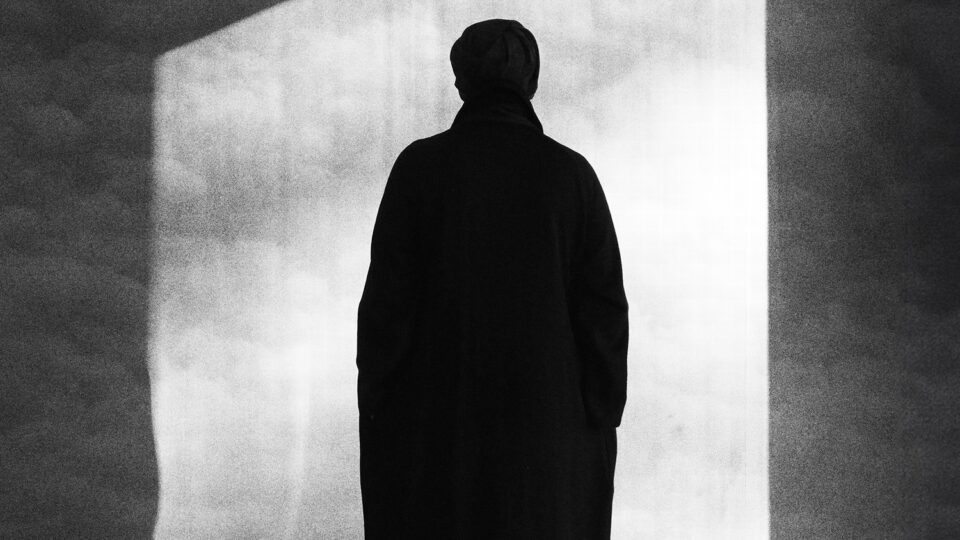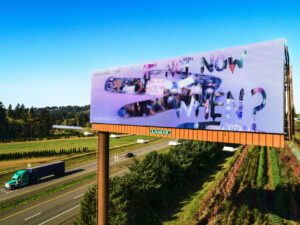The Heart of the Matter is an essential insight into the mind and vision of Carrie Mae Weems (b. 1953), one of the most influential voices in contemporary photography. Weems is known for creating art that give voice to people and communities have historically been silenced or ignored. She investigates history, identity and power, forming connections between personal experience and the larger structures and institutions that shape our lives. A new major exhibition at Gallerie d’Italia, Turin, includes work from the artist’s key series, charting the spiritual and personal path of her entire career. The show features 100 pieces, which underline Weems’ unique way of confronting the complexities and injustices of the world.

The comprehensive display begins with Family Pictures and Stories (1978-1984) – an intimate, documentary-style portrait of Weems’ loved ones. It is a privilege to walk through the images of Weems’ multigenerational family, bearing witness to a joyful and nuanced vision of Black life. In one photograph, a beaming little girl stands in the aisle of a supermarket, a packaged toy grasped in each hand. Weems’ description reads: “White or not, Sarah has a serious thing for my girl Barbie, has over a dozen of these dolls in her collection, wants more and plans on getting more. I mean Barbie has a grip on this child that’s downright scary.” Its informal and loving tone gives the impression you’re in conversation with the artist; she’s letting you in on a relatable personal anecdote. The series serves as a neat introduction to Kitchen Table Series (1990) – arguably her most famous work. Twenty images relay a fictional domestic melodrama, in which Weems’ character – sometimes joined by others, sometimes alone – is positioned under a bright light. Here, the kitchen table is a stage upon which the complexity of a woman’s life plays out.

Weems’ self-documentary approach is at its most potent in Museums (2006-ongoing). The artist, dressed entirely in black and turned away from the camera, stands outside cultural institutions. It’s a powerful assertion of presence in the face of buildings that often fail to equitably represent women and artists of colour. As art historian and curator Megan Kincaid writes, it’s an act of “radical stillness.” Photography’s role in upholding systems of oppression is addressed throughout the show, as is Weems’ continued dedication to revealing social injustice. Two key examples are The Shape of Things (2021), a timely video about turbulent American politics and racialised violence and Leave Now! (2022), dedicated to Weems’ grandfather, who disappeared after surviving an attack by a white mob. Her art often spills over into activism in other areas, such as leading public art projects and multi-disciplinary performances, as well as bringing together artists, musicians, poets, theorists and writers in moments of political engagement.

At the heart of the retrospective is new project, Preach, which was commissioned for this exhibition. The ambitious and powerful installation shows moments and places of worship, examining the role of religion and spirituality among Afro-descendant Americans. The series celebrates the deep, passionate and joyful forms of worship that typify Weem’s Black church experience, while at the same time denouncing the violence and oppression that are inextricably associated with this history. The works are made up of images from Harlem, San Diego and Sea Island, Georgia, showing black-and-white shots that tell a profound story of religious expression for Black Americans today. Weems writes in the original poem that accompanies this piece: “In the flames and among the bombs, pray where and when you can, in ports and shacks, in palaces and basements, in theatres and clubs. From your secret hiding place you have discovered new forms of worship…” The artist acts as muse and guide, inviting audiences to join this spiritual awakening and condemn the persecution that forces sacred spaces to become places of refuge and activism.
Whether in front of or behind the camera, Weems is at the heart of everything she does. But these artworks are not “about her”: they are for every woman, every Black individual, anyone who has faced inequality or had their voice silenced. That’s what makes this exhibition so important.
The Heart of the Matter is at Gallerie d’Italia, Turin until 7 September: gallerieditalia.com
Words: Emma Jacob
Image Credits:
1. Carrie Mae Weems, Untitled; from the series Preach. © Carrie Mae Weems. Courtesy of the artist and Gladstone Gallery, New York, Fraenkel Gallery, San Francisco, and Galerie Barbara Thumm, Berlin
2. Carrie Mae Weems, Untitled (Man and mirror), 1990; from the series Kitchen Table. © Carrie Mae Weems. Courtesy of the artist and Gladstone Gallery, New York, Fraenkel Gallery, San Francisco, and Galerie Barbara Thumm, Berlin.
3. Carrie Mae Weems, Untitled; from the series Preach. © Carrie Mae Weems. Courtesy of the artist and Gladstone Gallery, New York, Fraenkel Gallery, San Francisco, and Galerie Barbara Thumm, Berlin.
4. Carrie Mae Weems, Untitled; from the series Preach. © Carrie Mae Weems. Courtesy of the artist and Gladstone Gallery, New York, Fraenkel Gallery, San Francisco, and Galerie Barbara Thumm, Berlin.





